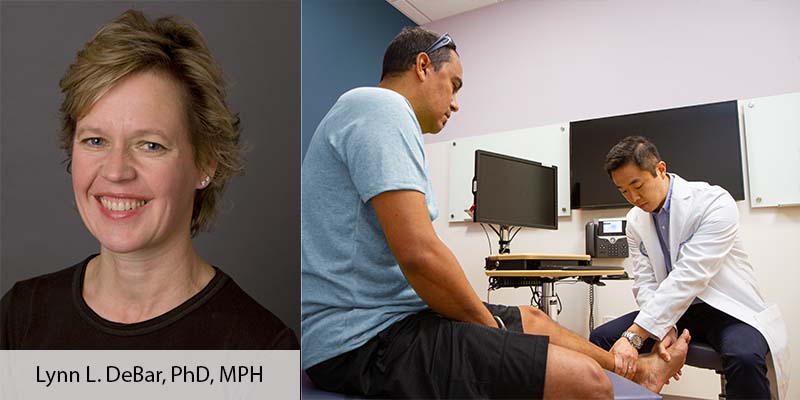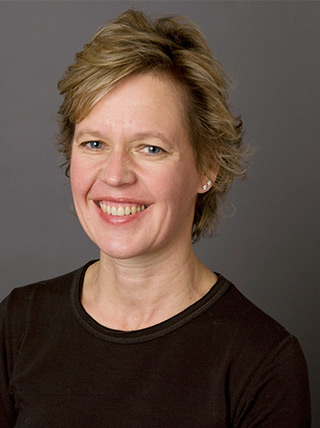
By Neon Brooks, PhD, Research Associate and Editor
 Lynn DeBar, PhD, MPH
Lynn DeBar, PhD, MPH
In January 2023, a familiar face returned to the Center for Health Research. Lynn DeBar, PhD, MPH, who first worked at CHR as a postdoctoral researcher beginning in 1997 and served as an Investigator and then Senior Investigator from 2002 to 2017, has returned as a Distinguished Investigator. Dr. DeBar had spent the last six years working as a Senior Scientist at the Kaiser Permanente Washington Health Research Institute.
Dr. DeBar is a clinical psychologist and behavioral health researcher who works to address health issues that have both physical and psychological causes and symptoms. She has a PhD in clinical and community psychology from Yale University and an MPH from Oregon Health & Sciences University, with training in epidemiology and biostatistics.
In recent years, Dr. DeBar’s research has concentrated on helping people with chronic pain and opioid use, particularly those with other co-occurring conditions. Dr. DeBar has evaluated a variety of treatments for chronic pain and opioid use, including mental health and substance abuse treatment, complementary and integrative health, and drug treatments. Most recently, she has evaluated real-world programs and policy changes that address these problems within primary care.
Dr. DeBar’s recent research has used innovative methods to conduct large scale studies and pragmatic trials—clinical trials conducted in real-world health care settings. In “Back on Track,” a large PCORI-funded study that recently concluded, Dr. DeBar and colleagues explored the impact of changes in Oregon Medicaid reimbursement policy on pain-related healthcare use and patient-reported pain and functioning.
The study found that increased coverage for non-drug therapies for back and neck pain— such as counseling, physical therapy, acupuncture, chiropractic care, yoga, and massage—led to greater use of these services, with positive impacts on patients’ pain management. Through qualitative interviews, the study also identified factors that influence successful policy implementation and demonstrated that creativity and flexibility on the part of frontline care providers and administrators were often key to improving patient outcomes.
Other recent and ongoing studies Dr. DeBar has led have examined a remote program for chronic low back pain; the impact Medicaid reimbursement policies have had on acupuncture; and an innovative intervention that cuts across traditional mental health diagnosis boundaries to address opioid use disorder, depression, chronic pain, and other co-occurring conditions. In future research, Dr. DeBar hopes to conduct more research with this type of transdiagnostic focus. This could include additional studies of acupuncture as well as research that seeks to discover effective practices already in use by individual clinics or providers.
Dr. DeBar is committed to multicenter research focusing on health equity and has strong established relationships with OCHIN, as well as with clinics that serve people who are uninsured and underinsured across the country. In recent years, she has advised NIH Institute and Center Directors as part of the HEAL (Helping to End Addiction Long-term) Multidisciplinary Working Group; she has also served on the National Advisory Council for the National Center for Complementary and Integrative Health. Both experiences have given her insight into changing funding priorities and focus areas.
Since her return to CHR, Dr. DeBar has enjoyed reconnecting with old colleagues and making new connections. “It is wonderful to be back in this community,” said Dr. DeBar “After having been away, I really appreciate CHR’s unique strengths, including our enormous commitment to rigorous data coordination, our robust qualitative team, our strong health economics research focus, and our high level of scientific integrity across the board. It is also great to see the growth of health-equity focused work here at CHR – this work is incredibly important. We are fortunate also that the KPNW region is a great partner in research related to primary care and behavioral health.” Dr. DeBar is eager to share her knowledge and experiences with funding strategy, collaborative multicenter research, and pragmatic trial methods and implementation with her colleagues at CHR.